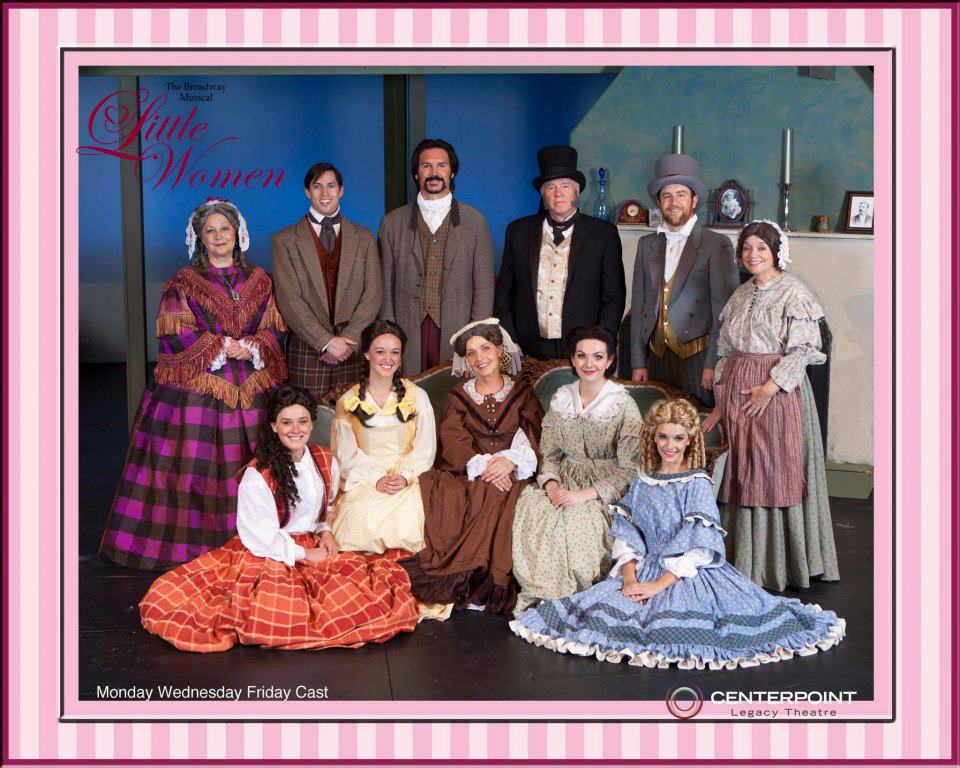 SALT LAKE CITY — I must confess upfront that I often have the hardest time writing reviews of shows I love. An uneven play warrants criticism—pointing out, in one’s own opinion, what works, what doesn’t, what could have, and why. But a great play deserves better than simply recycling the same old superlatives—it demands an essay.
SALT LAKE CITY — I must confess upfront that I often have the hardest time writing reviews of shows I love. An uneven play warrants criticism—pointing out, in one’s own opinion, what works, what doesn’t, what could have, and why. But a great play deserves better than simply recycling the same old superlatives—it demands an essay.
Amerigo was a great play—one so brilliantly and beautifully written and executed that it revitalized my love for great theater over the course of its ninety minute running time. If I don’t entirely give it the essay it deserves, it is because I don’t want to spoil the many discoveries to be had in the experience itself.
Merely relating the show’s premise is a delight—it concerns a debate between Christopher Columbus (Mark Fossen) and Amerigo Vespucci (Matthew Ivan Bennett), as moderated by Niccolo Machiavelli (Kirt Bateman) and judged by Sor Juana Ines de la Cruz (Deena Marie Manzanares), in purgatory. Samuelsen takes his premise and runs with it—the play is very, very funny in places, but it is also many other things: challenging, moving, educational, and, ultimately, spiritually uplifting.
 Director Jerry Rapier’s casting is perfect. There could not have been a better actor for Christopher Columbus than Mark Fossen. He has a quiet, commanding presence–a voice that can boom as well as it can whisper—and even in his silences he evokes a lofty sense of authority, as well as a searing, anguished intensity.
Director Jerry Rapier’s casting is perfect. There could not have been a better actor for Christopher Columbus than Mark Fossen. He has a quiet, commanding presence–a voice that can boom as well as it can whisper—and even in his silences he evokes a lofty sense of authority, as well as a searing, anguished intensity.
Matthew Ivan Bennet’s Amerigo Vespucci is his opposite in almost every way—a little rodent of a man who is willing to do just about anything for a buck, but who also is animated by an ennobling and passionate zest for life.
Deena Marie Manzanares plays Sor Juana Ines de la Cruz (probably the least familiar of the four characters for most, de la Cruz was a 17th century nun, and a wonderful poetess and playwright). Manzanares’ de la Cruz is strong and smart, and her moments of vulnerability give the play much of its shape and emotional gravity.
 Kirt Bateman fully embodies Machiavelli’s delight in logic and power; Machiavelli could easily have been written one-dimensionally (as the play points out, he’s a man who’s been reduced to a word: “Machiavellian”), but Samuelsen is a better and smarter writer than that. Each of the four characters in Amerigo is a study in the good and evil that exists within every one of us, and Machiavelli here is less Machiavellian than he is a naturally brilliant and enthusiastic student of the politics of human behavior. (Bateman’s funny, energetic performance reminded me more than anything of Tom Hulce’s Mozart in Amadeus.) This not only makes for a more fun and complex character, but one that also, to me, feels truer to Niccolo Machiavelli the writer and political theorist.
Kirt Bateman fully embodies Machiavelli’s delight in logic and power; Machiavelli could easily have been written one-dimensionally (as the play points out, he’s a man who’s been reduced to a word: “Machiavellian”), but Samuelsen is a better and smarter writer than that. Each of the four characters in Amerigo is a study in the good and evil that exists within every one of us, and Machiavelli here is less Machiavellian than he is a naturally brilliant and enthusiastic student of the politics of human behavior. (Bateman’s funny, energetic performance reminded me more than anything of Tom Hulce’s Mozart in Amadeus.) This not only makes for a more fun and complex character, but one that also, to me, feels truer to Niccolo Machiavelli the writer and political theorist.
Indeed, one of the many wonderful things Amerigo does is take these characters that have become words (“Machiavellian”, “America”, “Columbia”) and deconstruct their legend to remind us that they too were people—as real, layered, flawed, and noble as any of us. In this sense, Eric Samuelsen is both playwright and historian. The play speaks to the amount of research that must have gone into it—and, even as it reconstructs history for us, Amerigo is constantly reminding us of the inherent artifice and construction of history itself. The play’s intricate metatheatricality adds even more layers to this commentary-on-a-commentary, and Samuelsen manages to weave in not only his own character’s writings, plays, and reenactments, but also those of Aristophanes, Euripides, and Aeschylus. The result is a tapestry of history, historiography, and theater that still manages to be, I think, accessible to both layman and scholar alike.
Amerigo‘s spare, striking set design—a mandala with the earth’s globe at its center—speaks to the play’s sense of historiography, and, coupled with the quiet, constant sound design, it also manages to feels like purgatory itself—a sort of non-space, abstract, haunting, and ethereal (I’m not sure if it was intentional, but the lack of an intermission added to the effect: there is no escape). The actors’ blocking orbits around this fundamental design of the circle and the square, and the message speaks powerfully and subtly: this is purgatory—Earth, America—and we, too, are here to work off our sins. And, we hope, eventually find a paradise.
 Amerigo, ultimately, is a play about America. It is about the driving forces behind America—religion and commerce. It is about the land, and about the sins of the fathers—about capitalism and Catholicism, colonialism, sexism, racism. It is about how we are all inadvertent imperialists, whether our proselytizing be political or spiritual (or both). It is an amazing play—one that made me laugh, think, and moved me deeply—incredibly brought to life by director Jerry Rapier and his extraordinary cast and crew, and it is well worth the cost of admission. I can’t recommend it enough.
Amerigo, ultimately, is a play about America. It is about the driving forces behind America—religion and commerce. It is about the land, and about the sins of the fathers—about capitalism and Catholicism, colonialism, sexism, racism. It is about how we are all inadvertent imperialists, whether our proselytizing be political or spiritual (or both). It is an amazing play—one that made me laugh, think, and moved me deeply—incredibly brought to life by director Jerry Rapier and his extraordinary cast and crew, and it is well worth the cost of admission. I can’t recommend it enough.




